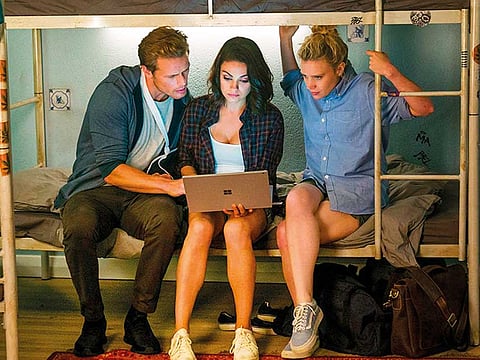Female-led summer comedies getting a makeover
Despite tankers like ‘The Spy Who Dumped Me’, there’s plenty of life left in them if they just aim for a broader audience

It somehow seems very far away, but it was just seven years ago when Bridesmaids changed the face of the summer film comedy.
The Kristen Wiig-Melissa McCarthy vehicle came along at a moment when conventional wisdom held that a raunchy comedy led by women couldn’t carry the box office. The movie carried it and then some: with $169 million, Bridesmaids became the second-highest grossing movie of the year that wasn’t a sequel.
Over the five successive summers, a slew of female-led R-rated comedies followed: The Heat and Trainwreck, Bad Moms and Bad Teacher. Some were great; some were a little rougher around the edges. But their batting average was consistently high: Over this period there were six female-led R-rated comedies to top $100 million domestically, the gold standard for a comedy — eight if you count a two-hander like We’re The Millers and a hit driven by a female audience like Magic Mike. Basically, the R-rated female comedy was a can’t-miss.
The past two years have told a different story. There’s been exactly one R-rated female-led comedy to top $100 million over this calendar period — Girls Trip, a movie that achieved the feat by refreshingly and far too belatedly featured a principal cast composed entirely of people of colour.
More typical is The Spy Who Dumped Me, which grossed a dismal $7 million at the box office this past weekend. The film, which stars Mila Kunis and Kate McKinnon, is high speed chase off a box office cliff, with just $24 million taken in through its first two weeks. And don’t even ask about 2017s Rough Night.
You can point to plenty of factors for the fall-off. R-rated comedies generally tend to burn bright, then fade away. In fact, the male version fell on harder times a lot sooner than the female one. After The 40-Year-Old Virgin and The Hangover had a heyday in the 2000s, the category has been dismal in recent years.
The last R-rated summer comedy led by male stars and not coming in the guise of superhero characters to top $100 million was released more than four years ago. (22 Jump Street, if you’re curious.) Novelty is a big factor with this genre. And when it’s gone, it’s really gone.
You can also look at another, more sociologically encouraging factor to explain the post-Bridesmaids crash: The rise of female comics like Michelle Wolf on Netflix and Tiffany Haddish on Showtime and elsewhere. Those performers and the platforms that host them make these film comedies a little less unique, and a little less necessary. Don’t view it, in other words, as a collective loss of interest in the female-led R-rated comedy. Look at it as the need being filled somewhere else.
But the real question is where studios go from here (besides make more superhero, action and animated movies, which is where they always seem to go).
These R-rated summer comedies have been a part of a larger category the business inelegantly calls the counter-programmer — essentially, the movie made for a lower budget meant to appeal to all of those of us out there who are tired of the latest spectacle-heavy summer noisefest but still want to go to the movies.
These counter-programmers don’t have to feature a female-led cast. But because of the way Hollywood was busy casting superhero and action movies for far too many years, they often did. And they were among some of the biggest overperformers at the box office. For the five years before Bridesmaids, there was a raft of PG and PG-13 comedies and dramedies led by women, many of them smashes: The Devil Wears Prada ($125 million), Julie & Julia ($94 million), Mamma Mia ($144 million).
In fact, even as The Spy Who Dumped Me was ploughing forward with its tanking thing this weekend, Mamma Mia 2: Here We Go Again, was steadily sailing ahead, crossing $100 million and showing why there’s plenty of life in female-led summer comedies (unlike the male ones) if they just aim for a broader audience.
Studios may yet figure out the next counterprogramming trend to latch onto — heck, the way documentaries are performing, maybe we’ll even see a few studios taking a chance on a couple of those.
But they also would be encouraged to look back to movies like Mamma Mia and The Devil Wears Prada — enjoyable titles with female-driven casts that tweens and grandparents could see with equal interest. Studios pivoted away from them when the R-rated comedy took off. Might be time to pivot back.



